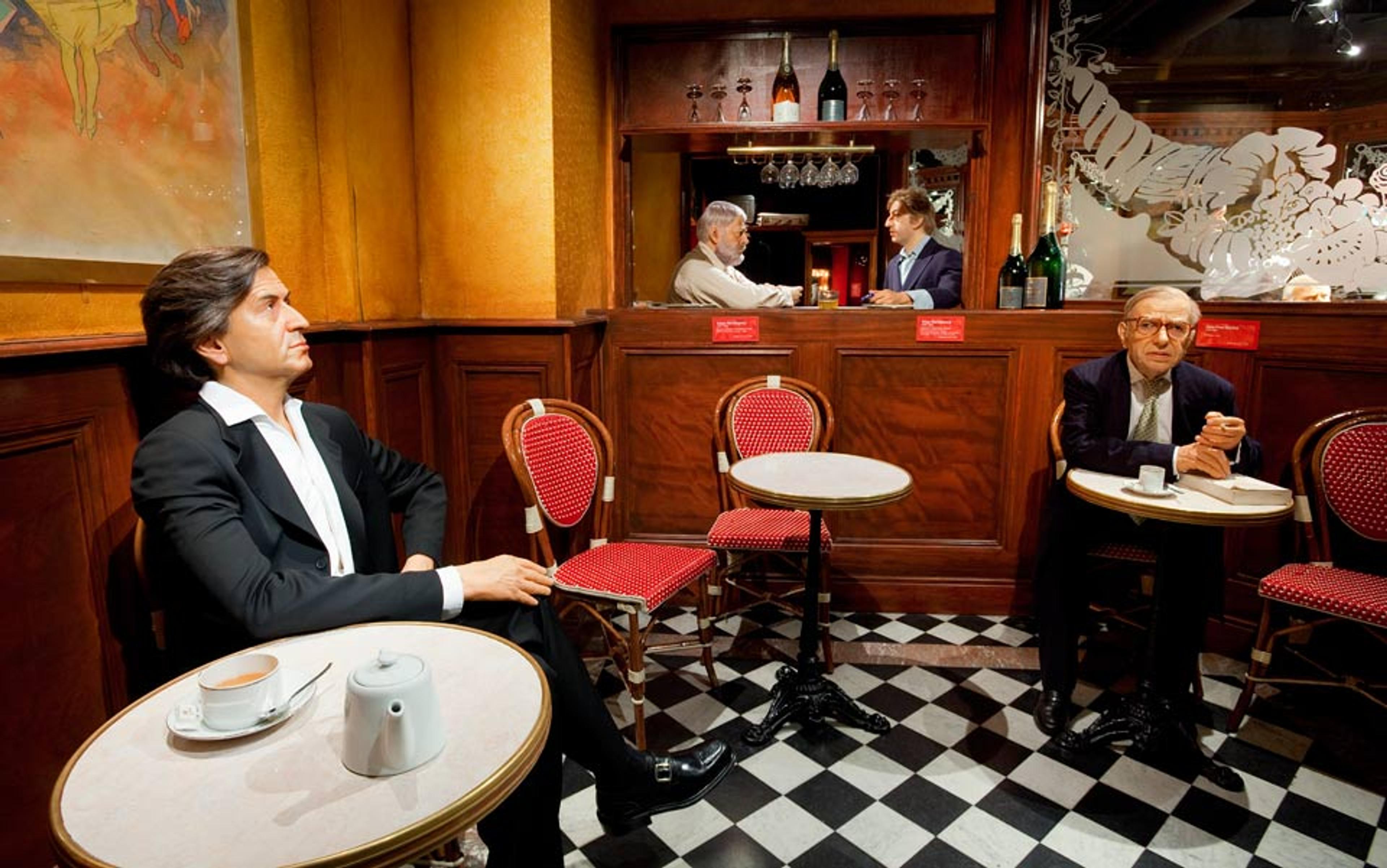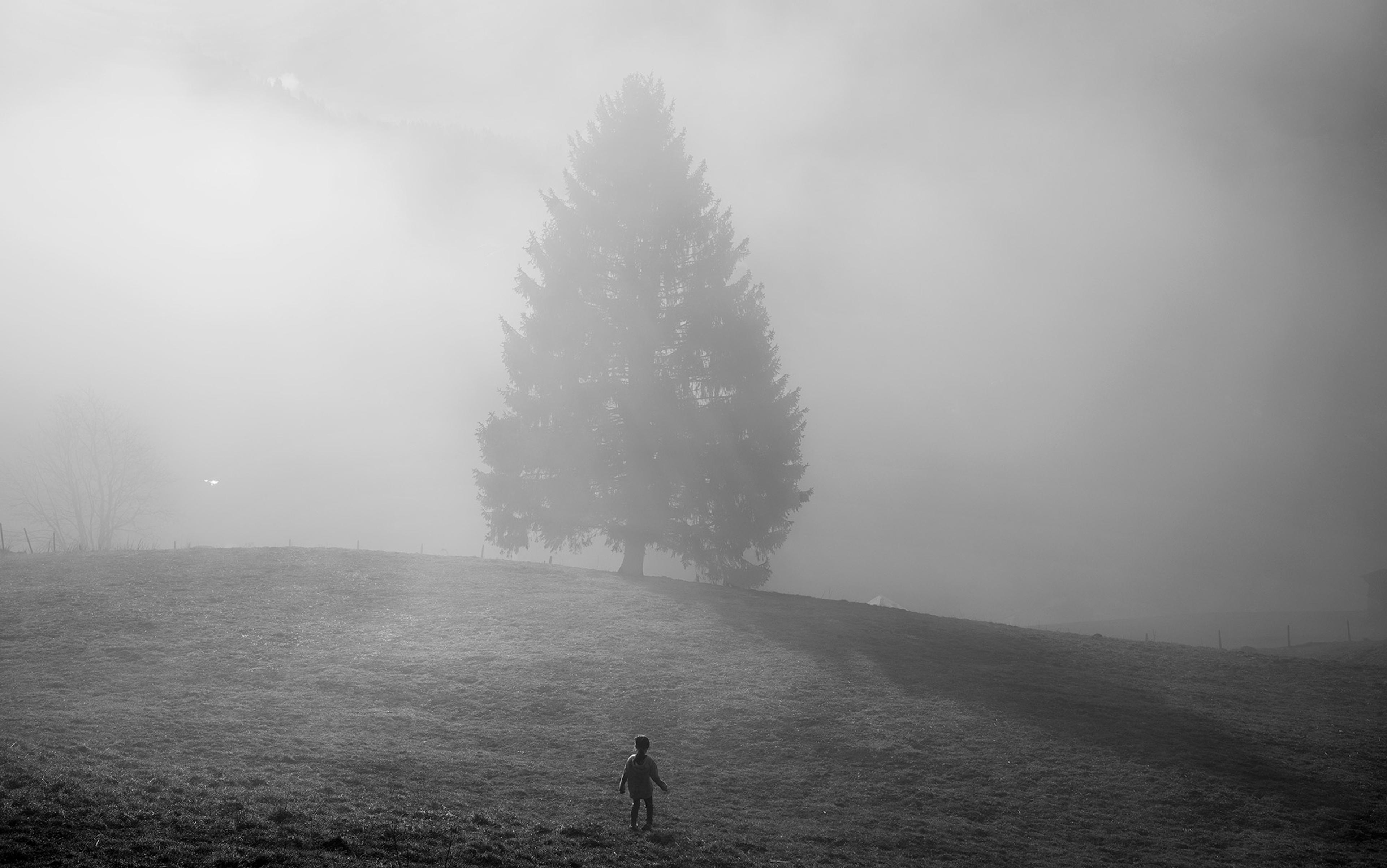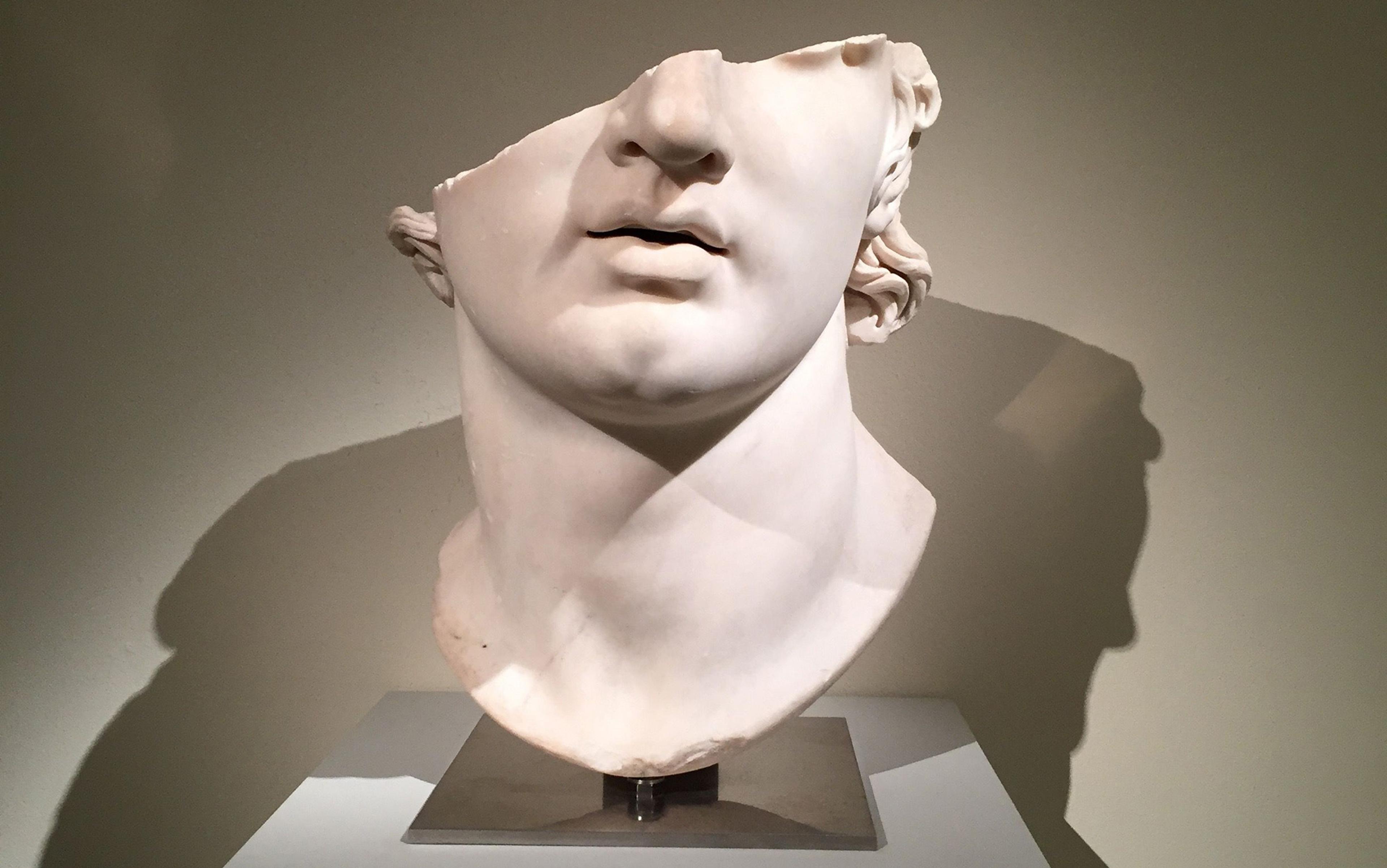‘As they say that Helen of Argos had that universal beauty that every body felt related to her, so Plato seems to a reader in New England an American genius. His broad humanity transcends all sectional lines.’
– from ‘Plato; or, the Philosopher’; Representative Men (1850) by Ralph Waldo Emerson
‘Only Hegel is fit for America – is large enough and free enough.’
– from an unpublished lecture on German philosophy; Notebooks by Walt Whitman (1819-92)
What is the future of philosophy in the United States? This question weighs heavily on teachers and scholars as philosophy departments around the country – at schools rich and poor, large and small – blink out of existence. Some are eliminated as part of an institution-wide downsizing effort, as operating budgets and endowments contract; others are simply pillaged for resources to give to other programs that more readily display the one virtue recognised by administrators: ‘impact’.
However, compared with other disciplines in the humanities experiencing rapid decline in majors and enrolments – English, history, languages and so forth – philosophy hangs on as a common minor or second, subordinate major for students pursuing degrees in law, politics or the natural sciences. Nevertheless, philosophy departments routinely wind up on the chopping block when administrators and educational consultants write up their plans for institutional restructuring, even if their elimination brings no obvious benefit.
Consider Manhattan College, for instance, a Catholic institution in New York that announced the elimination of their philosophy major earlier this year. In an interview with the campus newspaper, an anonymous faculty member said:
Philosophy is one of the strongest, fastest-growing programs at Manhattan College … we have over 20 per cent more students taking philosophy classes this year than last year … Closing the philosophy major and minor does not save any money.
This is just one example of many, all of which tell that the circumstances for studying philosophy in a college or university setting, democratised by the post-Second World War expansion of higher education, are in the midst of great change, if not dying out altogether.
The history of philosophical study in the US offers some insight into what this great change might look like. In the mid-19th-century US Midwest, two schools of philosophy appeared whose rivalry and work would shape a century of how philosophy was learned and studied, and not just in the US.
The Platonists of Illinois were centred around Hiram Kinnaird Jones of Jacksonville. The Hegelians of the St Louis Philosophical Society, meanwhile, were led by Heinrich Conrad (‘Henry Clay’) Brokmeyer and William Torrey Harris. These were movements of amateurs in the fullest and best sense: their ranks were composed of non-professional students of philosophy – lawyers, doctors, schoolteachers, factory workers and housewives – motivated by personal edification and the earnest pursuit of truth rather than professional achievement or status-acquisition. They conducted their activity against the backdrop of a country reeling from a bloody civil war, tenuously unified and engaged in an energetic campaign of westward expansion and industrialisation. The very intelligibility of their world had been thrown into question, and these readers and thinkers on the prairie found help in the great minds of the past. ‘The time,’ writes Denton J Snider, a member of the St Louis circle, ‘was calling loudly for First Principles’ – and, for their readers, Plato and Hegel offered paths toward them.
Labour provides the means of satisfying the hunger of the body; reading and thinking, the hunger of the soul
Born in 1826 in Germany, Henry Clay Brokmeyer had come to the US as a teenager with ‘twenty-five cents cash in my pocket, and a knowledge of three words of the English language in my head,’ either to escape military service or because his strictly religious mother had burned his volumes of Goethe; reports vary. He was expelled from two colleges – Georgetown in Kentucky, Brown in Providence – before moving to Newark, learning tanning and shoemaking, and decamping to the West to find work. But in St Louis, where he rented a small cabin and took a job in a foundry, Brokmeyer found a distinctly New World vitality and dynamism that gave him hope for the project of civilisation. As he writes in his posthumously published Mechanic’s Diary (1910):
I have travelled over the country from the state of Maine to the state of Louisiana, and from the Atlantic Ocean to the buffalo pastures upon the Eastern slopes of the Rocky Mountains, and if there is a centre of population that has as fine a country tributary to it as the city of St Louis – East, West, North and South – it has escaped my observation. Here if anywhere industry, economy and honest conduct must mean success – unless we have to believe that the world is but an annex of hell, as some people seem to think.
But civilisation, he knew, requires more than labour; it also needs thought, which is what Brokmeyer had come to the US to do:
On the upper shelf, I have Thucydides, Homer, Sophocles, Aristophanes, ‘The Republic of Plato’, with the dialogues called Critias, Parmenides, ‘The Sophist’ and the ‘Metaphysics’ of Aristotle. On the second shelf I have the works of Goethe and Hegel, complete. On the third, I have Shakespeare, Moliere, Calderon, and on the lowest shelf I have Sterne and Cervantes.
Thus, the few worldly possessions that adorn the cabin of a St Louis ironworker: the wisdom, from worlds both ancient and modern, of ‘those who have made man’s life human.’ Labour provides the means of satisfying the hunger of the body; reading and thinking, the hunger of the soul. But a good life can be formed only in the unity of these two essential activities: man does not live on bread alone, nor can he live without it. And Brokmeyer’s book – a Bildungsroman styled in diary form à la Thoreau – shows how it’s done:
I find it an excellent practice to put a page, or paragraph, of Aristotle, Plato or Hegel to soak – that is, transfer it to my memory in the morning and take it with me to my work. During the jostlings of the day it usually works itself into clearness of meaning, so that when I look at it again at night and trace its connections, all obscurity has vanished.
Brokmeyer’s range of interests was broad, his studies omnivorous. But his thinking ultimately orbited one book, which stood as the sun of his intellectual cosmos: Hegel’s Science of Logic (1812-16). ‘It was his one Supreme Book,’ Snider writes in 1920 in his history of the St Louis movement, ‘his Bible; it meant to him more than any other human production.’
Interpreting and disseminating the teachings of this book, which remained at the time entirely unread in the Anglophone world, was Brokmeyer’s primary goal. ‘But it does seem to me,’ he writes in his Diary, ‘that if there is a theme in nature, art or science that ought to be popular, that ought to be thoroughly familiar to everybody, it is the one treated in this book.’ To this end, Brokmeyer prepared the first known translation of Hegel’s Logic into English, which was passed around, studied, and copied by members of the group; ‘the first duty of the Philosophical Society,’ according to Snider, was ‘to revise and pay for publishing this central work.’ But this publication was never carried out, and Brokmeyer’s translation has largely been lost to the vicissitudes of time. (Only the second book, the so-called ‘Doctrine of Essence’, survives, deep in the collections of Harvard’s Widener Library.)

Henry C Brokmeyer in 1866. Courtesy the State Historical Society of Missouri
William Torrey Harris, a teacher in a St Louis public school, was impressed by Brokmeyer and his command of Hegel’s philosophy. ‘Mr Brokmeyer,’ Harris writes in the preface of his monograph on Hegel’s Logic, ‘whose acquaintance I had made in 1858, is, and was even at that time, a thinker of the same order of mind as Hegel.’ The two had met after a lecture at the city’s Mechanic’s Library; soon after their meeting, Harris wrote in his diary that ‘perhaps the most important and pressing mission in America at the time was to make Hegel talk English.’ Harris would become the most prolific and respected scholar of the St Louis movement, serving for 26 years as editor of, and regular writer for, their flagship Journal of Speculative Philosophy. He held this position through a 12-year career as superintendent of the city’s public schools, where he rose as an internationally respected expert on pedagogy until being tapped by the US president Benjamin Harrison to become the United States Commissioner of Education. Harris continued in this role under the next three presidencies.
The St Louis movement’s influence is more readily seen in politics than in philosophy
‘The real work of the St Louis Movement,’ writes Snider, ‘was done individually, or in little groups and classes … Its life pulsed in the small coteries which met usually in parlours or private rooms for the study of some special book or subject.’ Membership was small – it never numbered more than 100 – but the participants were eager and dedicated. The day-to-day activity of the Society was guided by Harris’s steady hand; Brokmeyer supplied the spirit and the vision. The Society thought of itself as a university, a place from which to observe and strive for understanding of the entire scope of the natural and human worlds, but in an entirely unofficial sense: it maintained no affiliation with any college or university in St Louis or elsewhere. Members met at each other’s homes, at city libraries and at a building rented by the Society (located, at one point, in North St Louis on Salisbury Street). Younger members were typically pupils who studied with Harris for free; other members, ones closer to being philosophic equals, would share recent articles and discuss matters intellectual and literary.
But because of the unprofessional, unremunerative nature of their activity, members had to pursue other vocations to win their bread. Brokmeyer left the foundry for politics in 1866, and was eventually elected Lieutenant Governor of Missouri; Harris and others taught children in the city’s schools; Snider had come to St Louis as the movement’s only college-level educator, teaching Latin and English at Christian Brothers College. Harris and Brokmeyer’s entry into politics, and their ultimate departure from St Louis, would eventually result in the movement’s decline and dissolution; and aside from the Journal – the first such philosophical periodical on US soil, home to early works by Josiah Royce, William James, Charles Sanders Peirce and John Dewey, among others – they left very few artefacts behind by which to be remembered.
Indeed, the St Louis movement’s influence is more readily seen in politics than in philosophy. Brokmeyer was a delegate to Missouri’s fourth constitutional convention in 1875; the constitution ratified there mandated that ‘separate free public schools shalt be established for the education of children of African descent.’ One can see how support for such a position would follow from a Hegelian commitment to the rationality of political life, the universality of reason, and the universal need for the education of the natural human intellect toward its fulfilment in rational activity.
Harris decisively reshaped the US system of education during his three decades as Commissioner, restructuring US schooling on the German Bildung model and implementing the country’s first universal kindergarten programme. (The first US kindergarten was launched in St Louis by Susan Blow, a friend and regular interlocutor of the Society.) In a more eccentric vein, Harris also encouraged the federal government to introduce reindeer into Alaska, to provide alternative game for Indigenous whalers, and to ‘make the education of the Alaskans not only a book education, but an education in the arts of civilised life.’ But above all this, their primary legacy was the seriousness with which they approached the philosophic enterprise, and their refusal to consider philosophy as anything less than an absolutely necessary part of a complete human life.
Founded in 1825 by New England Congregationalists of an enlightened, abolitionist persuasion, Jacksonville in Illinois quickly blossomed into a city of associations for education and reform. Literary clubs, feminist and antislavery groups, and philanthropic societies grew up alongside a collection of colleges and primary schools; Illinois College, the second institution of higher education established in the new state, conferred its first degree in 1835. This enthusiasm for association and education earned Jacksonville the nickname ‘the Athens of the West’. And the Virginia-born physician Hiram Kinnaird Jones was its Plato.
Jones founded the region’s first Plato Club in 1860 for the study, translation and elaboration of the dialogues of the Greek philosopher; others would soon appear in nearby Quincy, Decatur and Bloomington. (The Jacksonville club would later rename itself the American Akademe, in an effort to expand its scope and influence.) Educated in Classics, medicine and law at Illinois College, Jones quickly became one of the country’s most respected interpreters of Plato. In 1878, his fellow teacher and reformer Amos Bronson Alcott wrote:
I question whether one chair of philosophy in any of our colleges can deal as ably with pure metaphysics as our friend from the prairies of Illinois. We here in New England have listened to nothing concerning Plato comparable to his interpretations and statements of that supreme idealist.
But like his colleagues in St Louis, Jones was far from a narrow specialist. ‘Jones himself was a man of wide reading both in philosophy and literature,’ notes the historian Paul R Anderson in Platonism in the Midwest (1963). ‘[H]e was constantly associating ideas in Plato with similar ones in Dante, Shakespeare, Goethe, Spenser and others, and drawing parallels in Christian, Hindu, Persian and Chinese thought.’
Their object was the production of good human lives through a project of collective education and edification
Members of the Platonist school of Illinois came from a range of intellectual and religious backgrounds; no creedal or confessional orientation was necessary for joining, and members were free to interpret Plato and other philosophic texts in whichever direction they took them. They operated no less than three journals – The Platonist, Bibliotheca Platonica, and the Journal of the American Akademe – and at their final meeting in 1982, 433 of the town’s fewer than 20,000 residents had at one time been members.
The ultimate object of the group’s common effort was not the production of scholarship, but rather the production of good human lives through a project of collective education and edification. Jones held regular public lectures, and was famous for his ‘wonderful insight into Platonian philosophy’. But the primary form of group engagement was the seminar, in which members made contributions to a shared discussion guided by a common object of study – a dialogue of Plato, perhaps, or a work of Neoplatonic philosophy. Anderson records that:
One member easily burst forth with spontaneous intuitive insights whenever the spirit called her … One member flowered forth with pertinent bits of poetry whenever occasion permitted. Another had a ready streak of humor to lighten the discussion when it became too heated or involved. The group ranged in attitude from those who took their philosophy no more seriously than anything else to those who moved to Jacksonville for the very purpose of philosophical enlightenment.
Jones wrote one book on Plato, a commentary on the Laws. He was, with Harris and Amos Bronson Alcott, one of the founders of the Concord School in Massachusetts, where the thinkers of the Midwest would travel to debate the merits of Greek and German philosophy against New England Transcendentalism. The meetings between the supercilious New Englanders and the earnest, egalitarian Midwesterners were often comical, as the writer Louisa May Alcott (daughter of Amos) gleefully recounts in her diary:
I had a private laugh when Mrs ______ asked one of the newcomers [from the West], with her superior air, if she had ever looked into Plato. And the modest lady from Jacksonville answered, with a twinkle at me: ‘We have been reading Plato in Greek for the past six years.’ Mrs ______ subsided after that.
The prairie schools of philosophy were not just local curiosities; over the course of their roughly three decades of existence, they exerted a lasting influence on US intellectual culture, however much they themselves have been forgotten. They encouraged the growth of similar philosophical societies from the Midwest to the Eastern seaboard, in places like Chicago, Philadelphia and Massachusetts; they established a model for small-group adult education, contrasted with, for instance, the popular Lyceum model of the large public lecture; and they rekindled an interest in the study of classical, Medieval and early modern philosophy and literature among US thinkers who, influenced by transcendentalism and pragmatism, were all too often focused on what was simply useful or new.
‘We have listened too long to the courtly muses of Europe,’ Ralph Waldo Emerson had bemoaned in his speech ‘The American Scholar’ (1837). The philosophers of the prairie had no such complaint with the minds of the Old World. In an editorial preface to the first issue of the Journal of Speculative Philosophy in 1867, William Torrey Harris wrote:
For after all, it is not ‘American thought’ so much as American thinkers that we want … If this be the goal we aim at, it is evident that we can find no other means so well adapted to rid us of our own idiosyncrasies as the study of the greatest thinkers of all ages and times.
The prairie philosophers succeeded in cultivating a generation of such American thinkers, pulled from the ranks of workers and schoolteachers of the Midwest.
What example, then, do these schools provide for the enterprise of philosophy today? The first and most immediate takeaway is the reminder that philosophy has rarely been considered just one research discipline among others. The enterprise of philosophy, for both the Platonists and the Hegelians, remained first and foremost what it had been since its birth among the seers and sages of ancient Ionia and Italy: the love of wisdom, the dogged search for knowledge of the whole. The Platonists of Illinois ‘regarded philosophy as a necessary orientation for the whole business of human living,’ wrote Anderson, and for this Plato was the best guide; for the St Louis crowd, Hegel was ‘the last entire philosopher of the Great Entirety, inasmuch as the philosophers since Hegel are but piecemeals in comparison with his wholeness,’ according to Snider. This kind of philosophical activity could not have been secluded within department offices or academic conferences; it was coextensive with the very activity of being human, of putting one’s reason fully to work, and was thus necessary for living a good life.
The internet is like the US Midwest in the 19th century: a kind of Wild West frontier territory
In the past century or so, the market power and cultural influence of US colleges and universities has greatly increased, driven by the post-Second World War expansion of university education in the wake of the GI bill. As a consequence, the vibrant pluralism of the philosophic way of life has more or less flattened into a single option: that of the university scholar, whose credibility depends upon institutional affiliation. Before this radical transformation of US education, and the monopolisation of intellectual life by the university industry that followed in its wake, philosophy was understood to be – like all other pursuits of the mind and heart – a vocation with a professional expression, rather than the other way round. If philosophy in the US is to have any future, it will demand a return to this perennial picture of things, and ensure that communities dedicated to philosophising proliferate outside the walls of the academy, among groups of people other than just college teachers and undergraduates. It will demand, that is, a turn from thinking about education in terms of bloated, lumbering, hierarchical institutions like colleges and universities, to thinking in terms of that perennial feature of US public life that the political philosopher Alexis de Tocqueville said ‘gathers the efforts of divergent minds in a cluster and drives them vigorously toward a single goal’: the association.
A few such projects have come to fruition in the past few years, accelerated by the COVID-19 pandemic and the rapid development of virtual communication technology that followed in its wake. Indeed, one might understand the internet to be like the US Midwest in the 19th century: a kind of Wild West frontier territory drawing together readers and thinkers from all walks of life. The Catherine Project, led by the philosopher Zena Hitz at St John’s College in Annapolis, Maryland is one such initiative: their mission is to cultivate ‘communities of learning based on conversation and hospitality’ by hosting seminars and leading tutorials for learners from all walks of life, all free of charge. There are also what people in media and publishing sometimes call the ‘little magazines’, smaller-circulation journals dedicated to intellectual matters and cultural criticism; some of these have been building out opportunities for discussion and study among their readers. As it stands, however, the walls of the ivory tower remain high, and the institutional model reigns supreme.
At the end of Brokmeyer’s life, he travelled West to spend time among the Muskogee of Oklahoma, on the invitation of a former classmate from Kentucky. ‘As disciplinary philosophy grew in the hallowed halls of the Ivy League,’ writes John Kaag in ‘America’s Hands-On Hegelian’ (2016), ‘Brokmeyer spent his evenings with his native companions on the plains, teaching them to read – from Hegel’s Logic.’ Snider, too, recalls old Brokmeyer the wild man, made rugged and sharp from years out West: ‘I heard him explaining the deeper philosophy of deer-stalking in a pow-wow with some Creek Indians,’ he recalls; he is struck by ‘the massive grimace, the coppery tint, the wild eye of him.’
A fitting image, perhaps, for what philosophy itself might look like after its retreat from the ivory tower and return to the wilderness of everyday human life: a bit rough around the edges, perhaps, and a little wild in the eyes. Aristotle says that, in perceiving, the organ of perception receives the form of what is perceived and takes on its shape, ‘as wax is receptive of the design of a signet ring.’ If we wish to see reality in all its wildness, then, it’s only right that our own eyes become a little wild.






